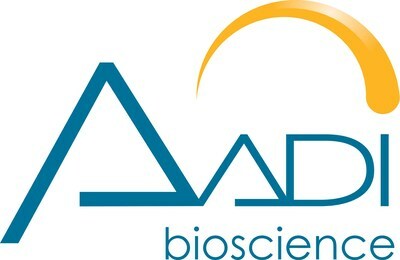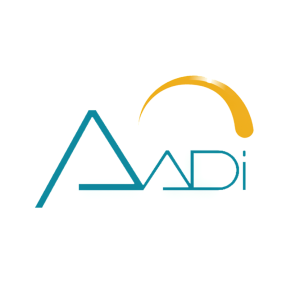Aadi Bioscience Presents New Subgroup Analysis of Patients with Advanced Malignant PEComa of Gynecologic Origin Treated with nab-Sirolimus at Society of Gynecologic Oncology (SGO)
- None.
- None.
Insights
The recent subgroup analysis from the AMPECT trial showing efficacy and safety of nab-sirolimus in patients with gynecologic origins of malignant perivascular epithelioid cell tumor (PEComa) is significant. PEComa is a rare sarcoma and the treatment options are limited. The fact that more than half of the evaluable patients in the trial had tumors of gynecologic or retroperitoneal origin underscores the prevalence of these cancers within the PEComa population. The reported overall response rate of 37.5% aligns with the broader trial results, which is encouraging for consistency of treatment effect.
Furthermore, the rapid and durable responses, with a median time to response of 1.4 months and a median duration of response of 36.2 months, are noteworthy. These findings may influence treatment protocols and could lead to increased adoption of nab-sirolimus in clinical practice for this patient subset. The manageable safety profile also reassures clinicians regarding the risk-benefit ratio of this therapy. This data could potentially lead to more personalized care for patients with mTOR-driven gynecologic cancers, a field where precision medicine is increasingly important.
The focus on the mTOR pathway in gynecologic cancers is a strategic area of research, given its role in cell growth, proliferation and survival. The mTOR inhibitors, like nab-sirolimus, are particularly promising due to their targeted mechanism of action. The additional data presented at the SGO meeting, including real-world studies and updates on ongoing trials, provide a comprehensive view of the potential role of nab-sirolimus in treating mTOR-driven cancers.
In the context of business impact, Aadi Bioscience's focus on a niche but critical area of oncology could position them favorably in the precision oncology market. The PRECISION1 trial and the phase 2 study of nab-sirolimus in combination with letrozole for advanced endometrioid-type endometrial cancer (EEC) could further expand the drug's applicability and market potential. The identification of TSC1 and TSC2 inactivating alterations in a subset of gynecological cancers through real-world databases provides a valuable biomarker-driven approach to patient selection, which is key in the era of personalized medicine.
From a market perspective, the precision oncology sector is witnessing significant growth, driven by the demand for targeted therapies and the rise in incidence of cancer globally. Aadi Bioscience's advancement in this field, particularly for rare and aggressive cancers like PEComa, could enhance their market presence and competitive edge. The company's stock performance might reflect investor confidence in their clinical development strategy and potential revenue growth from nab-sirolimus.
Investors should monitor the progress of the ongoing PRECISION1 trial and the phase 2 combination study with letrozole, as positive outcomes could lead to further FDA approvals and expanded indications for nab-sirolimus. Moreover, the prevalence of TSC1 and TSC2 inactivating alterations in gynecological cancers presents a substantial patient population that could benefit from nab-sirolimus, potentially increasing the drug's market penetration. The focus on a precision medicine approach aligns with current industry trends towards targeted therapies and could result in strategic partnerships or interest from larger pharmaceutical companies.
Subgroup experienced efficacy and safety consistent with overall study population
Advanced malignant PEComa tumors of gynecologic origin accounted for more than half of the evaluable patients enrolled in AMPECT
Additional data presented highlight nab-sirolimus as potential approach for mTOR-driven gynecologic cancers
"In AMPECT, advanced malignant PEComa tumors originating from uterine, ovarian, pelvic or retroperitoneal sites had a response to nab-sirolimus consistent with that of the full study population, including overall response rate, onset and duration of tumor response," said Thomas J. Herzog, MD, Deputy Director, University of Cincinnati Cancer Center. "Malignant PEComa tumors of gynecologic or retroperitoneal origin accounted for more than half of the evaluable patients enrolled, offering important insights into this population and reinforcing the need for awareness and understanding of this rare but aggressive cancer among the gynecologic oncologist community."
Oral plenary presentation details and study highlights include:
Title: "Response to Treatment with nab-Sirolimus in Patients with Perivascular Epithelioid Cell Sarcoma (PEComa) of Gynecologic or Retroperitoneal Origin: Subgroup Analysis from AMPECT"
Presenting Author: Thomas J. Herzog, MD
Session Title: Focused Plenary V: Rare Care: Updates in Uncommon Cancers
Location: Ballroom 20CD
Date/Time: Sunday, March 17, 2024 – 1:45 PM to 2:45 PM
- Of the 31 patients enrolled in AMPECT, 16 had malignant PEComas originating from uterine, ovarian, pelvic or retroperitoneal sites
- Overall response rate to nab-sirolimus for the subgroup was
37.5% (6/16), consistent with the overall AMPECT population - Subgroup responses were rapid and durable, with 1.4 months median time to response and 36.2 months median duration of response
- Safety profile of the subgroup was manageable and consistent with the overall AMPECT population
Additional data presented at SGO further highlight nab-sirolimus as a potential approach for mTOR-driven gynecologic cancers. These presentations include a real-world study characterizing TSC1 and TSC2 inactivating alterations in patients with advanced gynecologic cancers; trial-in-progress updates for the ongoing, tumor agnostic, registration-intended PRECISION1 trial; and a Phase 2 study of nab-sirolimus in combination with letrozole for advanced or recurrent endometrioid-type endometrial cancer (EEC).
"Overactivation of the mTOR pathway has been implicated in gynecological cancers," said Loretta Itri, MD, Chief Medical Officer at Aadi. "nab-Sirolimus is a nanoparticle albumin-bound (nab) mTOR inhibitor under investigation in TSC1- and TSC2-mutated tumors as well as other mTOR-driven tumors. We are diligently continuing to explore the potential of nab-sirolimus for this patient community in need of new therapies."
Poster presentation details and highlights include:
Title: "Analysis of inactivating TSC1 and TSC2 alterations in a real-world patient population with advanced gynecological cancers in the Foundation Medicine genomic database"
Presenting Author: Lauren E. Dockery, MD, MS
Session Title: Poster Session 1
Location: Exhibit Hall (Hall GH)
Poster Number: 1176
Date/Time: Sunday, March 17, 2024 – 1:15 PM to 2:45 PM
- Registration-directed PRECISION1 study is enrolling patients with solid tumors harboring TSC1 and/or TSC2 inactivating alterations
- In a large real-world database of patients with advanced cancer, 1,342 (
2.4% ) of the 54,911 patients with gynecological cancers harbored at least one inactivating alteration in TSC1 or TSC2 - TSC1 and/or TSC2 inactivating alterations were present in
3.6% of endometrial cancers,2.0% of ovarian cancers and1.5% of cervical cancers
Title: "nab-Sirolimus Plus Letrozole in Advanced or Recurrent Endometrioid Endometrial Cancer: A Phase 2, Open-Label, Single-Arm, Prospective, Multi-Center Study"
Presenting Author: Lauren E. Dockery, MD, MS
Session Title: Poster Session 2
Location: Exhibit Hall (Hall GH)
Poster Number: 2127
Date/Time: Monday, March 18, 2024 – 11:45 AM to 12:45 PM
- This ongoing phase 2, open-label, single-arm, multicenter study is evaluating nab-sirolimus in combination with letrozole for the treatment of patients with advanced or recurrent EEC
- Prior clinical studies with mTOR inhibitors and endocrine therapy have yielded promising results in EEC
Title: "nab-Sirolimus for Malignant Solid Tumors Harboring Pathogenic Inactivating Alterations in TSC1 and TSC2 in a Phase 2, Multicenter, Open-Label Tumor-Agnostic Trial: PRECISION 1"
Presenting Author: Debra L. Richardson, MD
Session Title: Poster Session 2
Location: Exhibit Hall (Hall GH)
Poster Number: 2126
Date/Time: Monday, March 18, 2024 – 11:45 AM to 12:45 PM
- TSC1 and/or TSC2 inactivating alterations have been observed in patients with gynecological cancers with a frequency of up to
5.0% in endometrial cancer,2.2% in ovarian cancer and1.5% in cervical cancer
About Aadi Bioscience
Aadi is a commercial-stage precision oncology company focused on the development and commercialization of therapies for cancers with alterations in the mTOR pathway, a key regulator of cell growth and cancer progression. To unlock the full potential of mTOR inhibition, Aadi uniquely combines nanoparticle albumin-bound (nab) technology with the potent mTOR inhibitor, sirolimus. Aadi received FDA approval and commercializes FYARRO® for the treatment of adult patients with locally advanced unresectable or metastatic malignant perivascular epithelioid cell tumor (PEComa).
Aadi is exploring nab-sirolimus in PRECISION1, a Phase 2 tumor-agnostic registration-intended trial in mTOR inhibitor-naïve malignant solid tumors harboring TSC1 or TSC2 inactivating alterations. Aadi is also exploring nab-sirolimus in two single-indication Phase 2 trials for difficult-to-treat mTOR-driven cancers: neuroendocrine tumors (NETs), and advanced or recurrent endometrioid-type endometrial cancer (EEC) in combination with letrozole. More information on the Company's development pipeline is available on the Aadi website at www.aadibio.com and connect with us on Twitter and LinkedIn.
Forward-Looking Statements
This press release contains certain forward-looking statements regarding the business of Aadi Bioscience that are not a description of historical facts within the meaning of the Private Securities Litigation Reform Act of 1995. Forward-looking statements are based on the Company's current beliefs and expectations and may include, but are not limited to, statements relating to: expectations regarding the beneficial characteristics, safety, efficacy and therapeutic effects of FYARRO; expectations regarding the clinical responses and safety profile, regulatory approval and commercialization, and the sufficiency of the Company's existing capital resources and the expected timeframe to fund the Company's future operating expenses and capital expenditure requirements. Actual results could differ materially from those anticipated in such forward-looking statements as a result of these risks and uncertainties, which include, without limitation, those associated with the uncertainties associated with the clinical development and regulatory approval of FYARRO in additional indications; the risk that interim or subgroup analysis results of clinical trials may not be reproduced and do not necessarily predict final results; the risk that one or more of the clinical outcomes may materially change as patient enrollment continues, following more comprehensive reviews of the data and as more patient data become available; the risk that unforeseen adverse reactions or side effects may occur in the course of commercializing, developing and testing FYARRO; and risks related to Aadi's estimates regarding future expenses, capital requirements and need for additional financing.
Additional risks and uncertainties that could cause actual outcomes and results to differ materially from those contemplated by the forward-looking statements are included in the Company's Annual Report on Form 10-K for the fiscal year ended December 31, 2023, including under the caption "Item 1A. Risk Factors," and elsewhere in Aadi's reports and other documents that Aadi has filed, or will file, with the SEC from time to time and available at www.sec.gov.
All forward-looking statements in this press release are current only as of the date hereof and, except as required by applicable law, Aadi undertakes no obligation to revise or update any forward-looking statement, or to make any other forward-looking statements, whether as a result of new information, future events or otherwise. All forward-looking statements are qualified in their entirety by this cautionary statement. This cautionary statement is made under the safe harbor provisions of the Private Securities Litigation Reform Act of 1995.
Contact:
IR@aadibio.com
![]() View original content to download multimedia:https://www.prnewswire.com/news-releases/aadi-bioscience-presents-new-subgroup-analysis-of-patients-with-advanced-malignant-pecoma-of-gynecologic-origin-treated-with-nab-sirolimus-at-society-of-gynecologic-oncology-sgo-302090852.html
View original content to download multimedia:https://www.prnewswire.com/news-releases/aadi-bioscience-presents-new-subgroup-analysis-of-patients-with-advanced-malignant-pecoma-of-gynecologic-origin-treated-with-nab-sirolimus-at-society-of-gynecologic-oncology-sgo-302090852.html
SOURCE Aadi Bioscience








